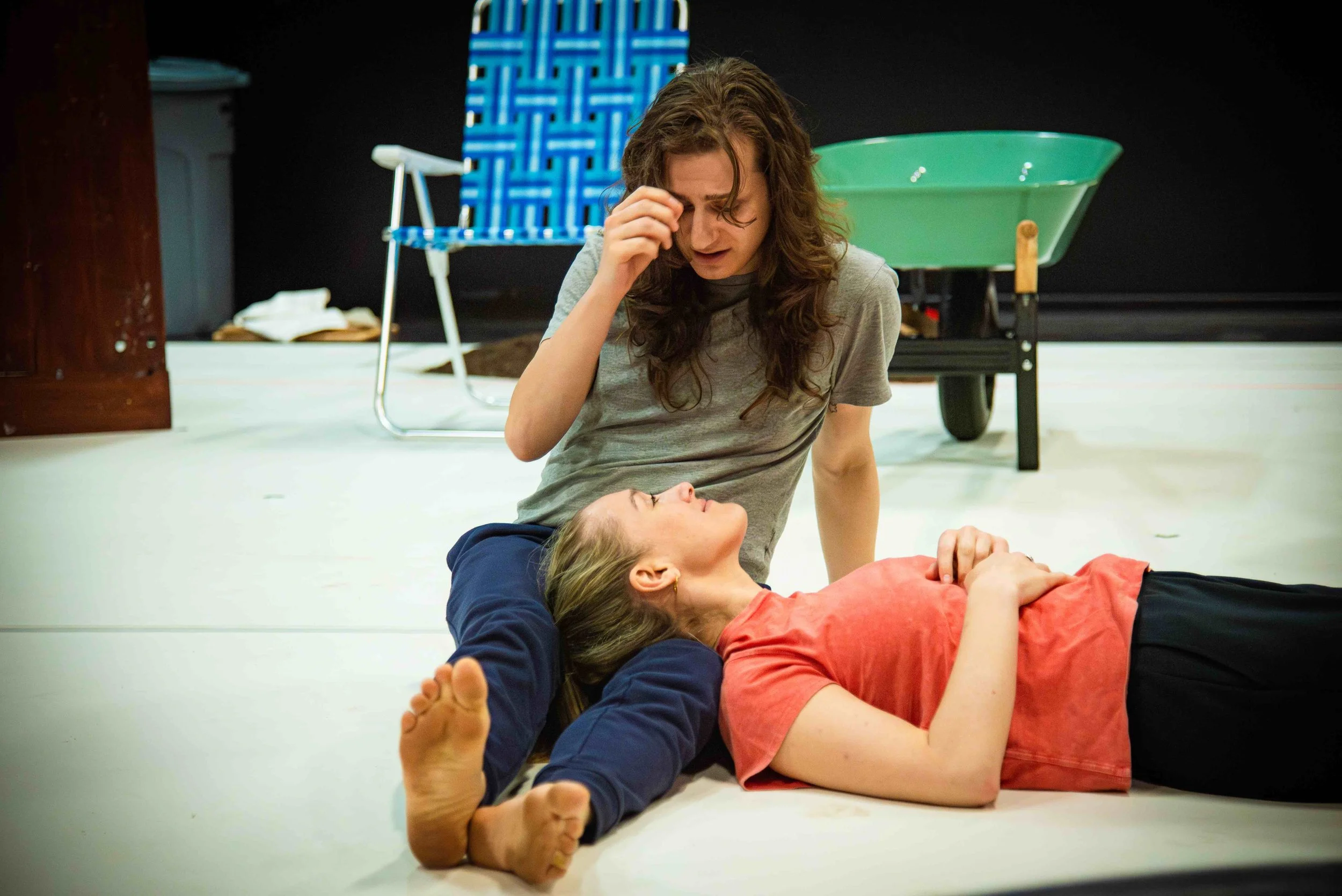Theatre review: The Cave's cabaret-jazz songs are the highlight of climate-minded creature feature
Performers hand in compelling vocal turns as animals in a show that sometimes gets heavy handed with humans
Andrea Koziol hands in one of several compelling performances in The Cave. Photo by Jeremy Marasigan
JMar Electric’s The Cave is at The Cultch Historic Theatre to November 20
There are plenty of things to love about The Cave, the song cycle by composer John Millard, lyricist Tomson Highway, and dramaturge Martha Ross.
Millard’s music, for instance, is a delight. Played by a crack band led by the composer himself on banjo and vocals, the songs sit in a cabaret-jazz spot that mercifully steers clear of Broadway show-tune excess—which has got to be tricky when you’re writing a show focused entirely on singing forest critters.
The four leads—Andrea Koziol, Derek Kwan, Alex Samaras, and Maryem Tollar—deliver some compelling vocal turns. Especially noteworthy are Tollar, whose expressively soaring singing made her the cast standout, and Samaras, who truly committed to his roles and sold the hell out of everything he sang—even when he had to do so while flapping about the stage pretending to be a crow.
The Cave is nominally about a group of animals who are fleeing a forest fire. As the kindly Bear, Samaras invites them to wait out the blaze in the relative safety of his cave. And that’s pretty much it, in terms of plot. The animals take turns singing songs that reflect their individual experiences of the fire. Of these, the one shared by Snake (Koziol) is the most heartbreaking, as she laments having no arms with which to carry her dozens of children away from the flames.
The Cave is best understood as a song cycle rather than a play; it has neither a clear narrative nor fully-formed characters. What it does have is an agenda. In the program, Millard and Ross note that “we wanted to write a show about the climate crisis that was imaginative and effective.”
Whether or not they and Highway have succeeded at this is in the eye of the beholder. At times, their message seems to boil down to (with apologies to George Orwell) “Four legs good, two legs bad.” From the animals’ perspective, the fire is very bad indeed. As devastating as they can be, however, fires are a natural, even essential, part of the life cycle of a forest. Certain tree species, including pine and sequoia, could not propagate without fire. It is true that climate change resulting from human activities contributes to warmer, drier conditions that can increase the likelihood and severity of wildfires; in this story, the blaze begins when lightning strikes the tinder-dry woods.
In The Cave, the fire’s impact on the animals is intended to be emblematic of humankind’s own existential fears of, in effect, burning down our own home. And that is effective as a metaphor. However, when the show tries to move beyond the symbolic and address humanity (i.e. the audience) directly, it becomes clumsy and heavy-handed. The story is, after all, primarily being told from the viewpoint of wild animals who live in a forest and have very little contact with people. The only human character in The Cave appears as a silhouette on the screen. The animals dub him “Chickadee Davis” and can only speculate about what he is and why he has come to the woods.
The job of implicating humanity falls to the only creature in the show who has regular, direct contact with Homo sapiens—a fed-up domesticated dog voiced by Millard. The composer’s performance as the indignant canine is very funny. The species we have dubbed “man’s best friend” is, of course, noted for its unquestioning loyalty to its two-legged masters, but Millard’s pooch has clearly seen too much to remain silent. Why a dog has such clearly formed opinions on overconsumption and the fossil-fuel industry is anyone’s guess, but it makes for an entertaining number nonetheless.
The highlight of The Cave, however, comes when a quartet of skunks sing a bawdy nonsense ditty with lyrics in Cree. (Helpfully translated via a note from Highway that Millard reads aloud.) It’s laugh-out-loud hilarious, and it’s also a much-needed respite from some of the show’s heavier bits.












